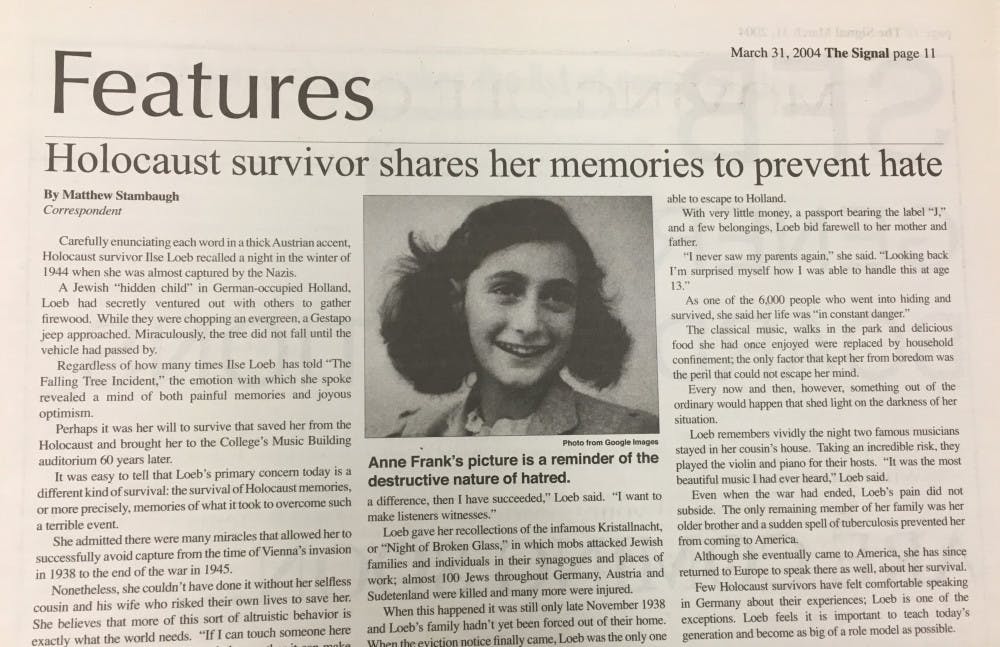By Elise Schoening
Features Editor
Every week, Features Editor Elise Schoening hits the archives and finds old Signals that relate to current College topics and top stories.
This week, Sigma Kappa sorority spent five days raising awareness and funds for those with Alzheimer’s. They worked to remind the campus how much we treasure our memories and how painful they can be to lose. Years before the sorority came to campus, a Holocaust survivor visited the College to share her stories with the hope that they would not be forgotten.
Carefully enunciating each word in a thick Austrian accent, Holocaust survivor Isle Loeb recalled a night in the winter of 1944 when she was almost captured by the Nazis.
A Jewish “hidden child” in German-occupied Holland, Leob had secretly ventured out with others to gather firewood. While they were chopping on evergreen, a Gestapo jeep approached. Miraculously, the tree did not fall until the vehicle had passed by.
Regardless of how many times Ilse Loeb has told “The Falling Tree Incident,” the emotion with which she spoke revealed both painful memories and joyous optimism.
Perhaps it was her will to survive that saved her from the Holocaust and brought her to the College’s Music Building auditorium 60 years later.
It was easy to tell that Loeb’s primary concern today is a different kind of survival: the survival of Holocaust memories, or more precisely, memories of what it took to overcome such a terrible event.
She admitted there were many miracles that allowed her to successfully avoid capture from the time of Vienna’s invasion in 1938 to the end of the war in 1945.
Loeb gave her recollections of the infamous Kristallnacht, or “Night of Broken Glass,” in which mobs attacked Jewish families and individuals in their synagogues and places of work; almost 100 Jews throughout Germany, Austria and Sudetenland were killed and many more were injured.
When this happened it was still only late November 1938 and Loeb’s family hadn’t yet been forced out of their home. When the eviction notice finally came, Loeb was the only one able to escape to Holland.
With very little money, a passport bearing the label “J,” and a few belongings, Loeb bid farewell to her mother and father.
“I never saw my parents again,” she said. “Looking back I’m surprised myself how I was able to handle this at age 13.”
Few Holocaust survivors have felt comfortable speaking about their experiences; Loeb is one of the exceptions. Loeb feels it is important to teach today’s generation and become as big of a role model as possible.







